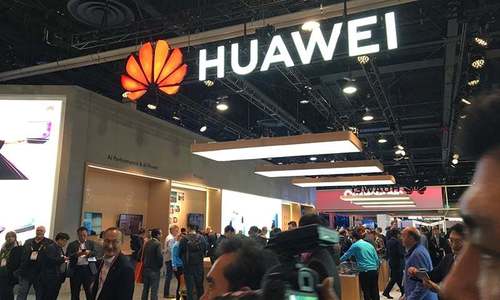US prosecutors have charged a Chinese professor with fraud for allegedly taking technology from a California company to benefit Huawei, in another shot at the embattled Chinese telecommunications equipment maker.
Bo Mao was arrested in Texas on August 14 and released six days later on $100,000 bond after he consented to proceed with the case in New York, according to court documents.
He pleaded not guilty in US district court in Brooklyn on August 28 to a charge of conspiring to commit wire fraud.
According to the criminal complaint, Mao entered into an agreement with the unnamed California tech company to obtain its circuit board, claiming it was for academic research.
The complaint, however, accuses an unidentified Chinese telecommunications conglomerate, which sources say is Huawei, of trying to steal the technology, and alleges Mao played a role in its alleged scheme. A court document also indicates the case is related to Huawei.
Mao, an associate professor at Xiamen University in China, became a visiting professor at a Texas university last fall. He first gained attention as part of a Texas civil case between Huawei and Silicon Valley startup CNEX Labs Inc.
In December 2017, Huawei brought a lawsuit against CNEX and a former employee, Yiren Huang, claiming theft of trade secrets. Huang, a former engineering manager at a US Huawei subsidiary, helped start CNEX in 2013 three days after leaving the company.
In a counterclaim, CNEX said Mao had asked for one of its circuit boards for a research project and that, after it sent the board to the professor, he used it for a study tied to Huawei.
That case ended in June with a “take nothing” judgment.
A jury did not find CNEX stole trade secrets from Huawei but decided Huang violated his employment contract by not notifying Huawei of patents he obtained within a year of leaving. However, the jury found Huawei was not harmed and did not award any damages.
The jury did find Huawei misappropriated CNEX trade secrets but awarded no damages on that claim, either.
Now, US prosecutors, who have an case against Huawei in Brooklyn for alleged bank fraud and Iran sanctions violations, have revived the CNEX case.
Although Huawei has not been charged, the company said it views the case against Mao as the US government's latest instance of “selective prosecution.” “US federal prosecutors are charging forward with CNEX's allegations,” a Huawei spokesman said in a statement, adding that prosecutors had shown no interest in Huawei's claims against CNEX.
The spokesman noted the United States was charging Mao, even though the professor was never sued by CNEX and never called to testify at the civil trial.
Take a look | Huawei won’t bow to US pressure: founder
A hearing in the criminal case against Mao is scheduled for Wednesday in Brooklyn federal court.
A spokesman for the US Attorney's office in Brooklyn declined to comment, as did a lawyer for Mao, a CNEX spokesman, and a lawyer for Huang.
Huawei says the US government has made a concerted effort to discredit the company and curb its industry leadership.
In January, US prosecutors charged Huawei with stealing robotic technology from T-Mobile US Inc. Huawei, which has pleaded not guilty, has said the companies settled their disputes in 2017.
The same day, the Justice Department unsealed a bank fraud indictment in Brooklyn that accused Huawei of misleading global banks about its business in Iran. The company has pleaded not guilty in that case as well.
The United States has also lobbied other governments to ban Huawei equipment, and banned companies from supplying Huawei with US components without special licenses, ratcheting up tension between China and the United States as they engage in a tit-for-tat trade war.
A Justice Department spokesman said last week that while the department does not comment on specific investigations, it complies with the law and all subjects “enjoy the same rights to due process afforded by our Constitution and safeguarded by an independent judiciary.”

















































Dear visitor, the comments section is undergoing an overhaul and will return soon.